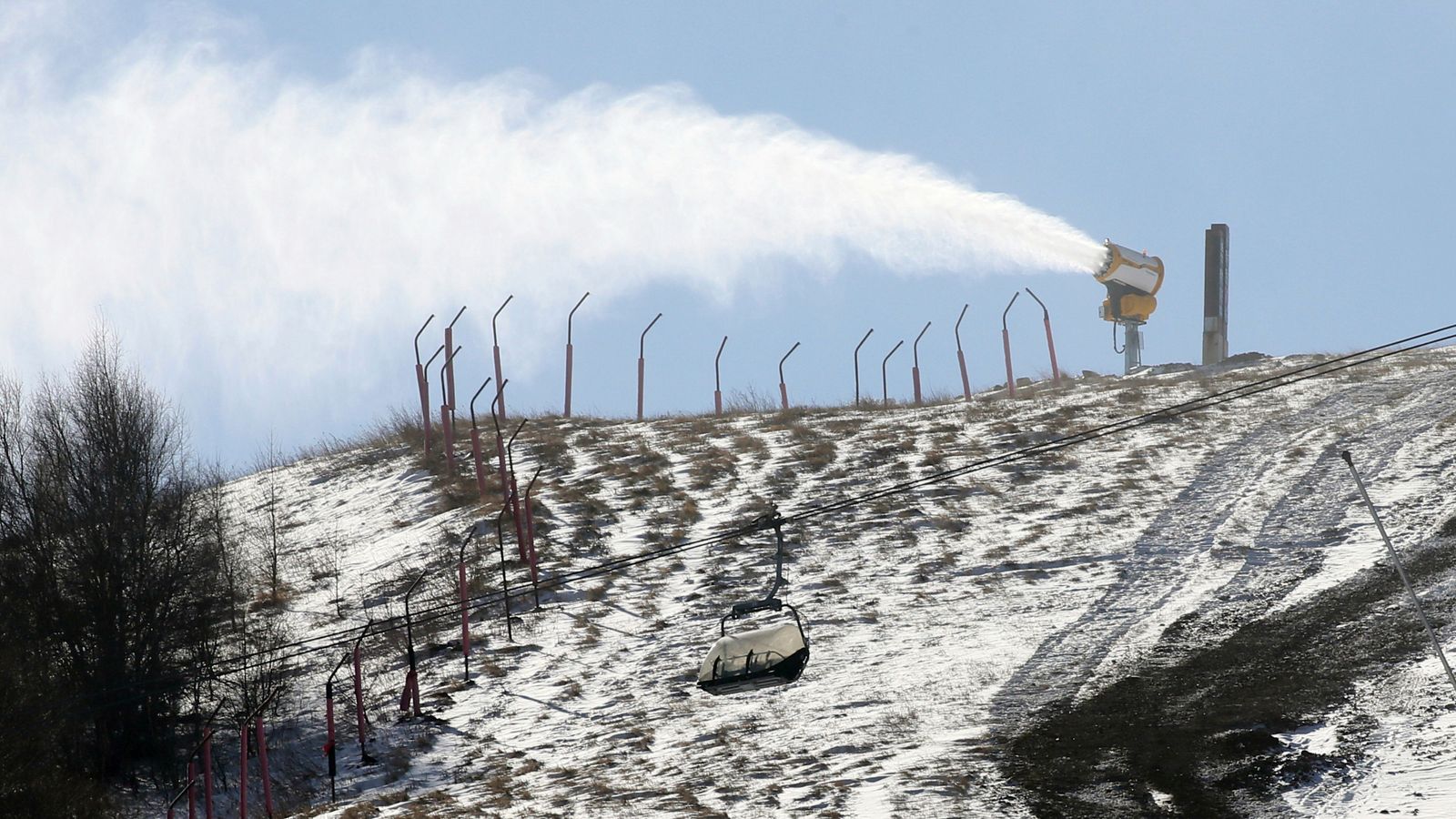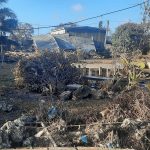Climate change is threatening the future of the Winter Olympics and snow sports by eroding the season and forcing more dangerous, artificial conditions, experts have warned in a report published a week before the 2022 Games.
The Beijing Olympics, which start on 4 February, will be the first Winter Games to use almost 100% artificial snow, relying on more than 100 snow generators and 300 snow-cannons working flat-out to cover the ski slopes.
“This is not only energy and water intensive, frequently using chemicals to slow melt, but also delivers a surface that many competitors say is unpredictable and potentially dangerous,” said the Slippery Slopes report, produced by researchers at Loughborough University and the Protect Our Winters environment group.
Read more: Five Team GB medal hopes to watch in Beijing
‘This is dangerous’
Scottish freestyle skier Laura Donaldson warned that if “freestyle super pipes are formed from snow-making machines in a poor [natural snow] season, the walls of the pipe are solid, vertical ice and the pipe floor is solid ice”.
“This is dangerous for athletes,” she added.
Beijing Winter Olympics: Jamaica’s bobsleigh heroes want medals and aren’t heading to the games just to make up the numbers
Winter Olympics: Lizzy Yarnold’s five Team GB medal hopes to watch in Beijing
Winter Olympics 2022: China warns UK, US and Australia will pay the price for diplomatic boycott of Beijing Games
The fears about conditions echo those expressed during last summer’s Tokyo Olympics, when athletes fainted and collapsed due to heat in a city that is on average 2.86C hotter than in 1900.
‘Unfortunate truth’
“The risk is clear: manmade warming is threatening the long-term future of winter sports,” the report warned, citing further studies. It added that global heating is also “reducing the number of climatically suitable host venues for the Winter Olympiad”.
It said the snowy slopes outside Beijing mask “an unfortunate truth: they will be the result of an estimated 49 million gallons of chemically-treated water frozen through snow machines”.
The Beijing organising committee has issued a sustainability report saying the Games’ “smart snowmaking system” could use 20% less water than traditional methods.
Four time Olympic snowboarder Zoë Gillings-Brier told Sky News that many competitions “are now being cancelled due to lack of snow – this wasn’t the case when I started competing internationally 20 years ago”.
She acknowledged that snow sports like many other things are carbon intensive, but said participants “are in general very interested in the environment because we see the impact of climate change every day, so there is a lot of enthusiasm for solutions in the community”.
Subscribe to ClimateCast on Spotify, Apple Podcasts, or Spreaker
Earlier this week Beijing said Chinese authorities would tackle polluters to ensure the Games would be held in a “good environment”, as particularly heavy smog clogged up the capital.
Of the 21 venues used for the Winter Games since the French resort of Chamonix hosted the first in 1924, researchers estimate that, by 2050, only 10 will have the “climate suitability” and natural snowfall levels to host an event.
Chamonix is now rated “high risk” along with venues in Norway, France and Austria, while Vancouver in Canada, Sochi in Russia and Squaw Valley in the United States are deemed “unreliable”.
Watch the Daily Climate Show at 8.30pm Monday to Friday on Sky News, the Sky News website and app, on YouTube and Twitter.
The show investigates how global warming is changing our landscape and highlights solutions to the crisis.






















